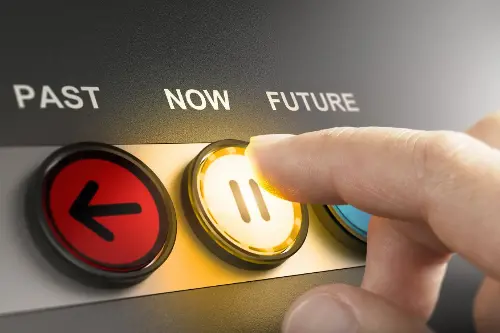Time travel has long captivated the human imagination, beckoning us with the allure of revisiting days past or glimpsing the world of tomorrow. The concept, popularised in science fiction, often tangles with our understanding of physics and the universe. But what does science actually say about the possibility of time travel? In this exploration, we will unearth intriguing facts and dispel myths that have fuelled our fascination with moving through time.

Unravelling the Fabric of Time
At the heart of the time travel debate lies the concept of spacetime, a four-dimensional continuum combining the three dimensions of space with the dimension of time. According to Einstein's theory of relativity, time is not a constant, but rather it can be affected by speed and gravity. The faster one travels, or the stronger the gravitational pull experienced, the slower time moves for them compared to someone who is stationary. This phenomenon, known as time dilation, has been proven through experiments with atomic clocks on high-speed aircraft and satellites.
Theoretical Pathways to the Past and Future
The concept of wormholes, theoretical passages through spacetime, presents one of the most fascinating speculative routes for time travel. A wormhole could, in theory, connect two distant points in spacetime, allowing for instantaneous travel between them—and potentially even a passage to another time. Kip Thorne, a renowned theoretical physicist, proposed that if these wormholes could be stabilised with a form of 'exotic matter' with negative energy, they might be used for time travel. However, such exotic matter remains purely speculative and has not been discovered.
Another thought-provoking concept from Einstein’s relativity is the idea of a closed time-like curve (CTC). Here, the fabric of spacetime bends back on itself to form a loop, theoretically allowing one to loop back in time. Yet, the practicalities of creating such a curve, and the paradoxes it could incur, such as the infamous "grandfather paradox,” where a time traveller could potentially prevent their own existence, make the physical realisation of CTCs contentious.
Time Travel in the Quantum Realm
Quantum mechanics has brought its own twist to the time travel narrative. Quantum particles are known to behave in peculiar ways, including time being a reversible process for them under certain conditions—as evidenced by experiments with quantum particles being 'entangled' in time, just as they are in space. While intriguing, these behaviours don't provide a mechanism for human-scale time travel, and certainly not in a way that resembles science fiction depictions.
Challenging the Myths and Movie Tropes
Cinema and literature have woven many a tale around time travel, often overlooking the scientific complexities in favour of narrative convenience. In these stories, time machines whisk characters to eras of dinosaurs or forward to robot-dominated futures. The reality is, calculations and experiments to date suggest that if time travel to the past is possible at all, it would require unfathomable amounts of energy and likely could not be achieved by any machine we could conceivably build.
Additionally, the myth that we can change significant past events and thus alter the present is fraught with logical issues, not least the possibility of creating time paradoxes. Most physicists agree that we have no evidence to support such scenarios, and they remain, for now, firmly in the realm of speculative fiction.
Are We Time Travellers Already?
In a sentimentalist's view, we are all travelling in time, albeit in a single direction—forward. This is the experience of time as we know it, incremental and relentless. Daily, we accumulate memories, and our actions lay down paths towards an unseen future. So in essence, time travel of a sort occurs naturally as we glide through the fourth dimension. We might not be able to leap between eras at will, but we are time's passengers, part of its ongoing voyage.
Looking to the Horizon of Understanding
The quest to understand time travel is more than an esoteric pursuit; it challenges our perceptions of reality. It compels us to ponder the deeper mechanisms of the universe and confront the limitations of our knowledge. While practical time travel may remain beyond our reach, the physics underlying the concept has real-world applications, such as the GPS technology that relies on time dilation to maintain accurate positioning information.
The future may unveil new principles of physics that could change the conversation entirely. But, for now, the consensus in the scientific community suggests that time travel to the past remains a captivating idea confined to the imagination. Forward time travel, on the other hand, in the sense of experiencing time differently due to extreme speed or gravity, is a proven reality, even if its effects are minute.
Journeys of the Mind
Perhaps the truest form of time travel available to us lies not in physics or mechanics but within the human mind. Through stories, memories, and dreams, we traverse temporal boundaries with ease, revisiting yesterday or conjuring tomorrows. Maybe, after all, the most profound time machine we have is our consciousness, capable of taking us places that reality, as it stands, cannot.
In conclusion, while physical time travel as depicted in science fiction remains a cornerstone of enthralling tales rather than scientific fact, the exploration of its possibility continues to drive forward our understanding of the universe. Whether we ever unlock the secrets to navigate through time, the journey of discovery is perhaps the most exciting adventure of all.
